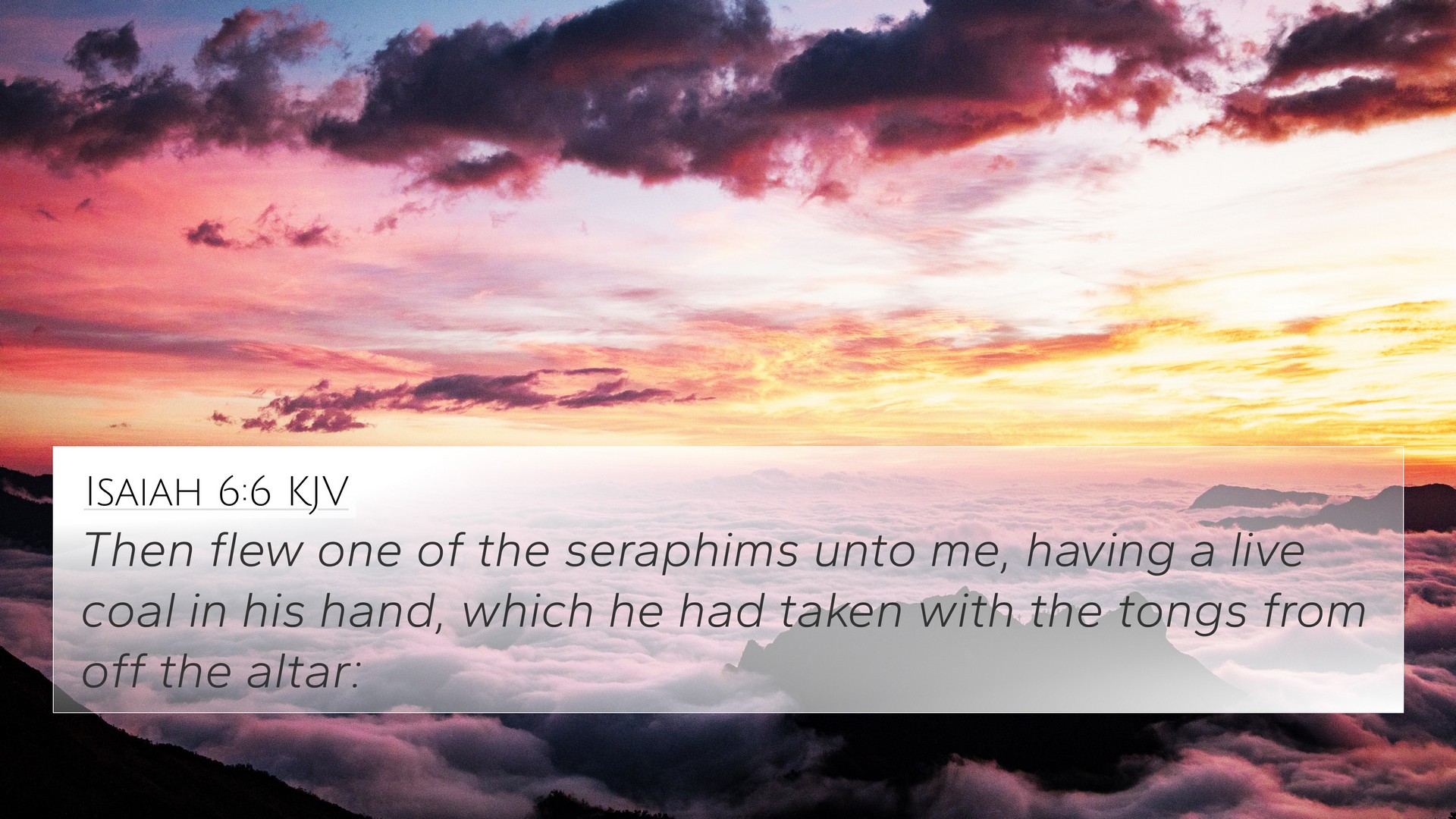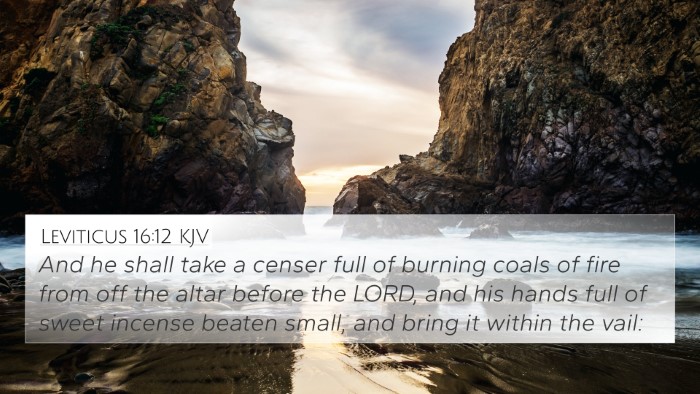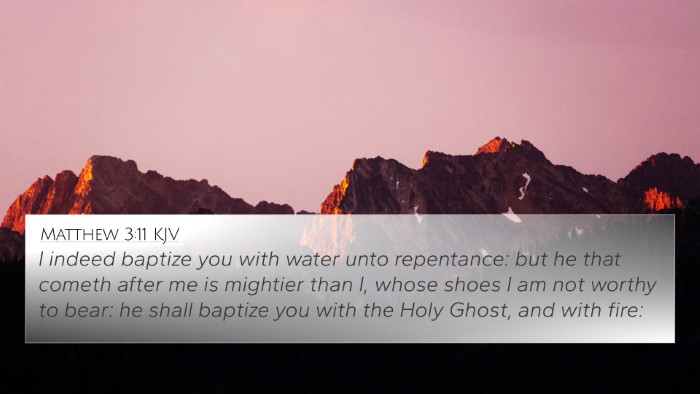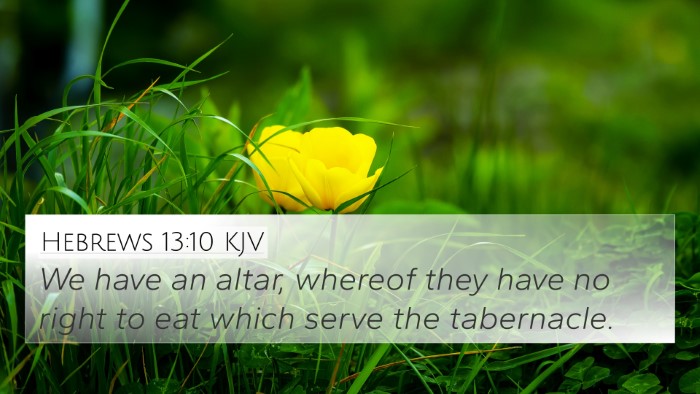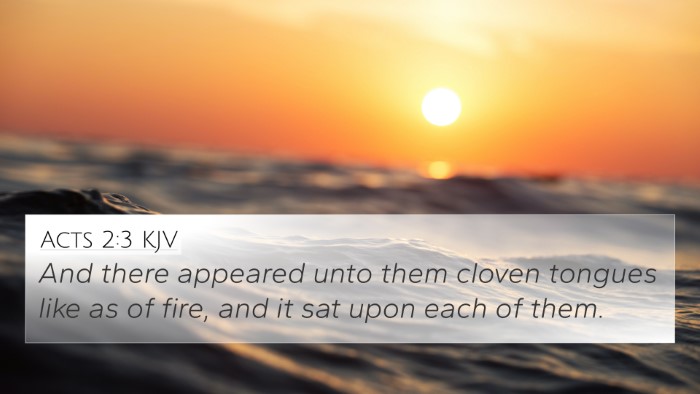Understanding Isaiah 6:6
Isaiah 6:6 reads: "Then flew one of the seraphims unto me, having a live coal in his hand, which he had taken with the tongs from off the altar." This vision of Isaiah captures a pivotal moment of divine revelation, purification, and commissioning. The verse carries deep theological and spiritual significance, which can be explored through commentary and cross-references from notable biblical scholars.
Summary of Isaiah 6:6
The verse presents a seraphim, a type of celestial being, who serves in the presence of God. The act of the seraphim bringing a live coal signifies not only purification but also the initiation into a prophetic calling. This moment is critical as it transitions Isaiah from a state of unworthiness to one of being cleansed for divine service.
Commentary Insights
-
Matthew Henry:
Henry emphasizes the symbolism of the live coal, pointing out that it represents the purifying power of God. He notes that just as fire purifies precious metals, so too does God's presence cleanse the heart and prepare one for service. Henry sees the seraphim's action as a demonstration of God's mercy, enabling Isaiah to fulfill his calling despite his initial sense of inadequacy.
-
Albert Barnes:
Barnes provides insight into the seraphim's role within the heavenly realm. He explains that these beings are ministers of God who serve in a capacity of worship and holiness. The coal taken from the altar, which symbolizes the sacrificial system, highlights the connection between atonement and the prophetic message that follows. Barnes reinforces the idea that true ministry begins after one has been cleansed and equipped by God.
-
Adam Clarke:
Clarke reflects on the nature and significance of the coal. He suggests that it represents fervent zeal and divine power, qualities essential for prophetic ministry. Clarke notes the importance of divine preparation for one who will speak on behalf of God, indicating that Isaiah's encounter with the seraphim is a transformative experience leading to his prophetic mission.
Bible Verse Cross-References
Isaiah 6:6 connects with several other scriptures that enrich its meaning:
- Exodus 3:5 - God instructs Moses to remove his shoes in the holy presence.
- Exodus 29:37 - The altar's significance in the rituals of purification.
- Isaiah 1:18 - God's invitation to come and be cleansed of sin.
- Hebrews 9:22 - The need for the shedding of blood for forgiveness.
- Revelation 5:8 - The heavenly worship and offerings presented before God.
- Psalms 51:7 - The prayer for purification and cleansing from sin.
- Jeremiah 1:9 - The act of God touching the lips signifies commissioning.
Thematic Connections
The connections between Bible verses are significant for understanding Isaiah 6:6, particularly regarding themes of purification, prophetic calling, and divine encounter. When examining these connections, we grasp the full scope of God's redemptive work and the necessity of His cleansing for those called to carry His message.
Tools for Bible Cross-Referencing
Utilizing tools for cross-referencing can enhance one’s study of scripture:
- Bible concordances help to locate verses by keywords or themes.
- Bible cross-reference guides provide contextual relationships among verses.
- Cross-reference Bible study methods organize scripture readings around a central theme.
Practical Application
The understanding of Isaiah 6:6 can aid in several areas:
- Identifying how personal encounters with God can transform lives.
- Exploring how the themes of purity and calling resonate in both the Old and New Testaments.
- Using cross-references for sermon preparation to illustrate the continuity of God’s message through biblical history.
Conclusion
Isaiah 6:6 serves as a profound reminder of God’s holiness and the transformative power of His presence. By exploring this verse through public domain commentaries and engaging in biblical cross-referencing, we gain a deeper understanding of how God prepares and calls His people. As we reflect on this passage, may we embrace the calling placed on each of our lives with the conviction that we, too, have been cleansed and commissioned for His work.
